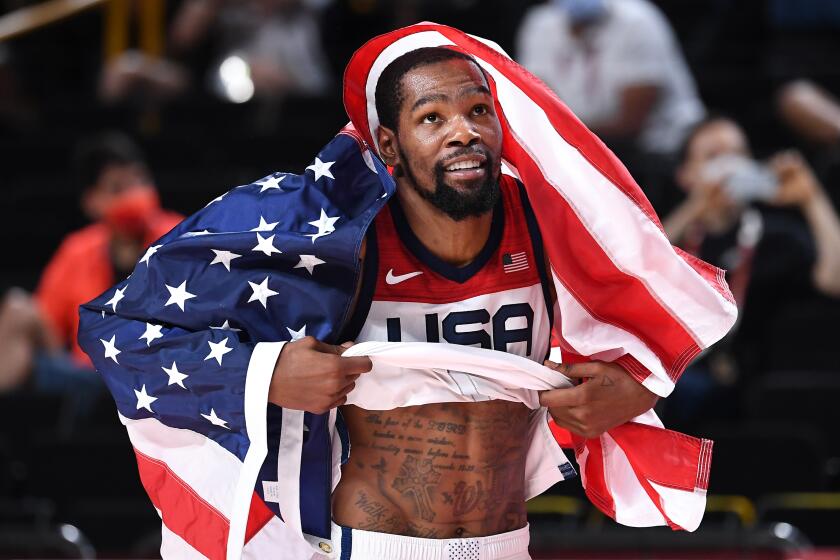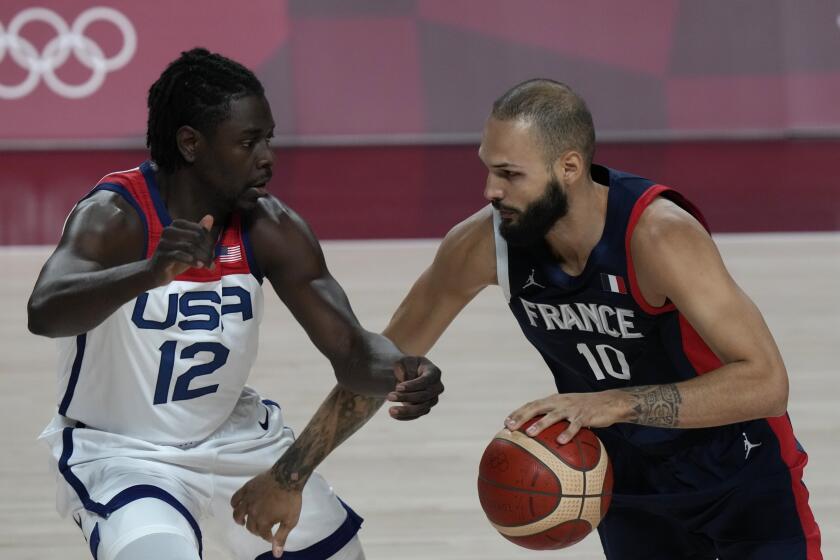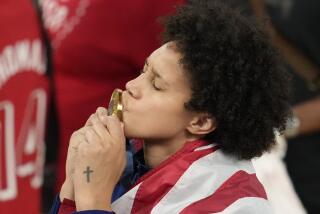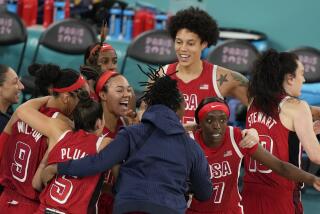Kevin Durant leads U.S. to gold-medal win over France in men’s basketball
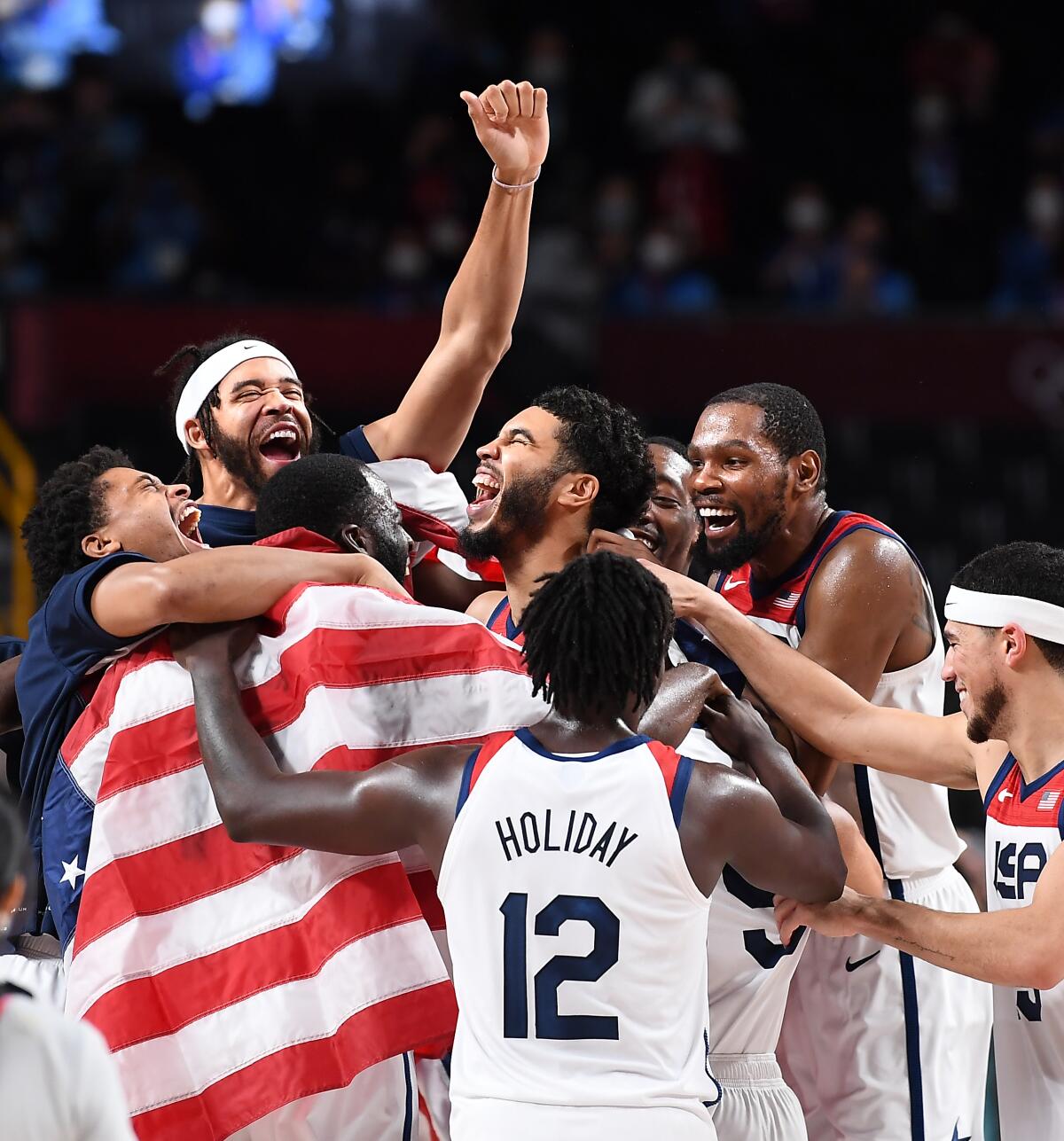
- Share via
SAITAMA, Japan — There was only one acceptable outcome.
It did not matter that the lingering physical and mental effects of the NBA bubble and the compressed season that followed kept several American stars from competing in these Olympics. It didn’t matter that the U.S. team was vulnerable, an embarrassing seventh-place finish in the 2019 world championships more than signaling that the world had caught up.
It did not matter that the American roster, composed of some of the NBA’s best scorers, faces of their franchises with multiple All-Star selections, was more a group of mercenaries than an actual team. It did not matter that COVID-19 cost them one star and that the NBA Finals kept three key players in America until the eve of competition.
It did not matter. There was only one acceptable outcome. Either you win or you’ve failed.
Movies on TV for the entire week, Feb. 14 - 20 in interactive PDF format for easy downloading and printing
Kevin Durant knew it and said it loudest. And then he made sure it happened.
As he led the U.S. through a gantlet of teams gunning for the NBA stars, Durant maintained that the only way this trip would be worth it was if it ended with gold. And against France in the final, he carried his team in an 87-82 win, scoring 29 points.
“Phenomenal,” U.S. center Bam Adebayo said when asked about Durant.
It was a showcase for Durant’s supreme and unexplainable skill, a near-7-footer with octopus-length arms, Larry Bird’s jumper and Kyrie Irving’s handle dominating in a way only one of the best players in the world could.
“That’s a special man,” Draymond Green said.
It’s Durant’s third gold medal and the fourth straight for the U.S., its longest streak since losing for the first time in the 1972 final in Munich.
On the way to gold, the weight of expectations was nearly equaled by the burden of doubt. The Americans lost twice in their exhibition schedule ahead of the Games, first to a Nigerian team filled with NBA players near the ends of their benches. Then they lost to medal contender Australia, meaning the team had lost four of its last five games with coach Gregg Popovich on the bench.
The team would lose Bradley Beal to COVID protocols and Kevin Love after he struggled in camp, forcing two last-minute roster changes.
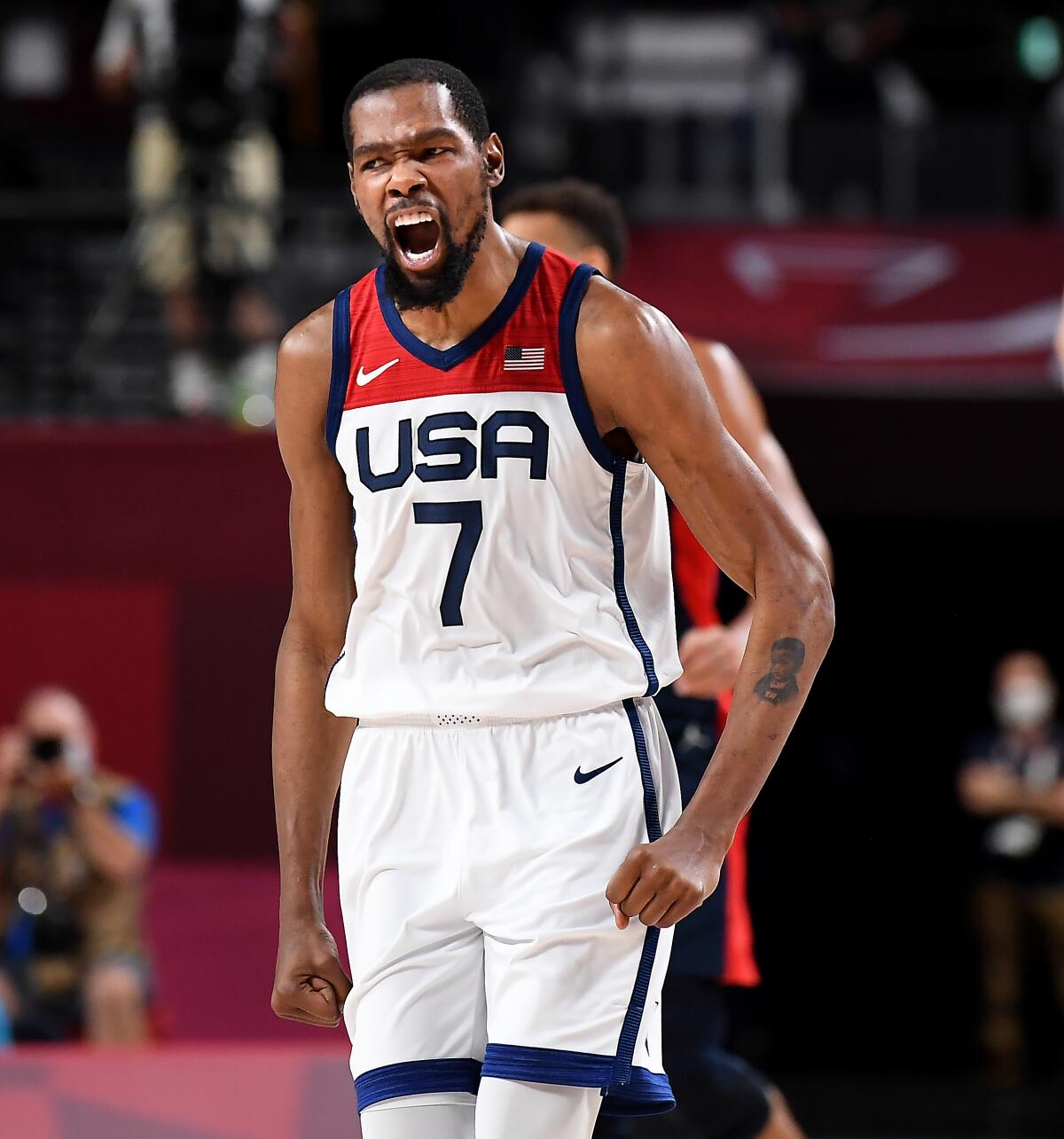
Popovich’s struggles with Team USA largely were fueled by the top players opting out of competition because of injuries and an ever-growing emphasis on rest. As the team faltered, Popovich continued to insist that the talent around the world had closed the gap on the Americans, that the days of blowouts and highlight-reel wins had gone away.
The Americans still had weapons, including the most prolific scorer in U.S. men’s Olympics history. Durant moved past Carmelo Anthony during these Games, his combination of size, skill and agility every bit as unmatched internationally as it is in the NBA.
And Jrue Holiday, who arrived in Japan with Khris Middleton and Devin Booker the night before the U.S. tournament opener after completing the NBA Finals, quickly became the team’s second-most important player.
Regarded in the NBA as one of the most versatile defenders, Holiday instantly became the team’s defensive engine in its switch-everything scheme.
Boston’s Jayson Tatum, who played only two games in the 2019 world championships because of injury, evolved into a key offensive option off the bench. But the big holes in the American roster were at two spots.
Damian Lillard, expected to be the complementary star, struggled through the tournament, never getting into a rhythm and providing little as a facilitator or defender. The team’s lack of size in the frontcourt also was exploited, especially by the French and center Rudy Gobert.
Every time the Americans threatened to turn the gold-medal game into a blowout, Gobert got to the basket or the free-throw line, keeping the game close. Gobert scored 16 as did Evan Fournier.
“Details cost us the game for sure,” Nicolas Batum said.
Quick microbursts off offense coupled with Holiday’s defensive pressure kept the Americans in control.
With the clock ticking down and the result nearly cemented, Durant pumped his fist. He high-fived teammates.
“We tried to make things tough on him, tried to make him work as hard as we can,” Gobert said. “But he’s Kevin Durant.”
Jrue Holiday quickly found his role on defense for the U.S. men’s basketball team and flourished in it during the run for an Olympic gold medal.
More to Read
Go beyond the scoreboard
Get the latest on L.A.'s teams in the daily Sports Report newsletter.
You may occasionally receive promotional content from the Los Angeles Times.

